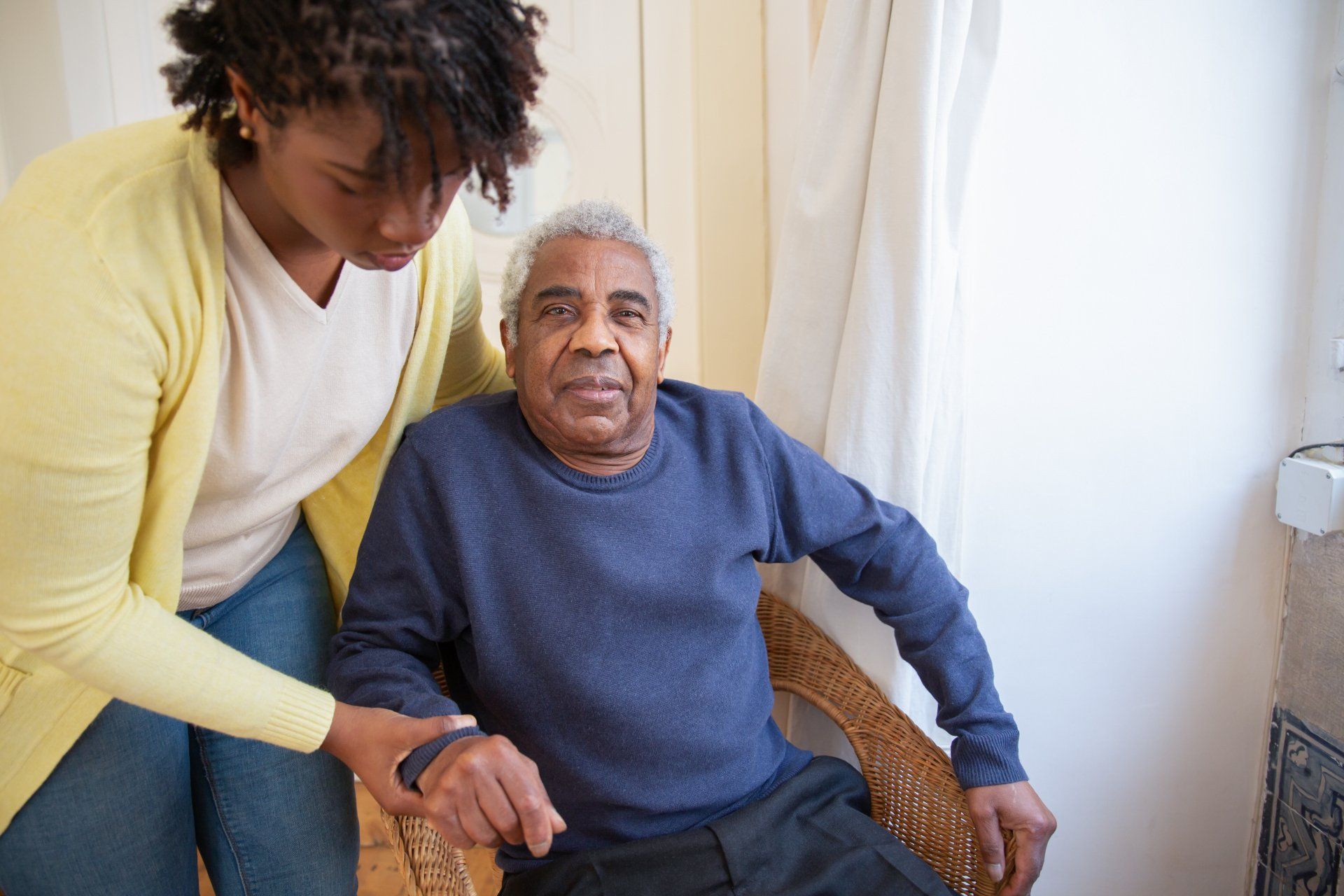NURSE AIDE
CONSUMER INFORMATION
More text here
More text here
More text here
More text here
More text here
More text here
More text here
More text here
More text here
More text here
More text here

Nurse Aide Diploma Program
The Nurse Aide program offers students the opportunity to train for a rewarding career as a Certified Nurse Aide (CNA). As a CNA, you will be responsible for providing care to clients who require basic nursing care. Students are introduced to the role of the Nurse Aide. Discussion and implementation of nursing process with emphasis on the physical, emotional, social, and spiritual needs of the client, and critical thinking are covered. Care of the patients with common disease processes are also covered. Test questions will be in NCLEX format utilizing critical thinking concepts. Legal and ethical aspects, licensure and current trends in health care are noted. The lab portion of this course provides opportunities for the student to observe demonstrations of selected skills and to demonstrate proficiency through a return demonstration. The skills are correlated with the units of study as well as the NNAAP® skills listing. Upon satisfactory completion of the program, graduates are eligible to apply for the NNAAP® Certification Exam which will allow students to petition the Board of Nursing for licensure as a Certified Nurse Aide.

Hours
The Nursing Aide program is held Monday through Thursday between 9:00 a.m. and 2:00 p.m. Day clinicals are scheduled Monday through Friday between 6:30 a.m. and 3:30 p.m. Classes missed due to holidays or scheduled cancellations will be made up on assigned Fridays or by extending regular class hours.

* Introduction to Nursing and
Health Care Agencies
* The Person’s Rights
* The Nursing Aide
* Ethics & laws
* Work Ethics
* Communication
* Understanding the Nursing Process
* Fall Prevention
* Body Structure and Function
* Growth & Development
* Care of the Older Patient
* Restraint Alternatives and
Safe Restraint Use
* Preventing Infection
* Body Mechanics
* Moving and Transferring Patients
* The Patient Environment
* Patient Hygiene
* Grooming
* Urinary Elimination
* Bowel Elimination
* Nutrition
* Nutritional Support and IV Therapy
* Measuring Vital Signs
* Comfort Rest & Sleep
* Admissions, Transfers & Discharge
* Physical Examination
* Collection and Testing Specimens
* Care of the Surgical Patient
* Wound Care
* Care of Patient with Pressure Sores
* Use of Heat & Cold Applications
* Care of Patient with Oxygen Needs
* Providing Care for Patient Rehabilitation
* Caring for Patients with Hearing Visions or Speech Problems
* Care for Patients with Cancer, Immune System, and Skin Disorders
* Care for Patients with Nervous System and Muscular-Skeletal Disorders
* Care of Patient with Cardiovascular and Respiratory Disorders
* Care of Patient with Digestive and Endocrine
Disorders
* Care of Patients with Urinary and Reproductive Disorders
* Care of Patients with Mental Health Disorders
* Care of Patients with Alzheimer’s, Dementia & Confusion
* Care of Patient with Developmental Disabilities
* Sexuality of Person
* Caring for Mothers and Infants
* Assisted Living Care
* Basic Emergency Care
* End of Life Care
* Safety

Nature of Work
Nursing Aides provide patient care and provide emotional support and advice to patients and their families. Nursing Aide work mainly in long-term care and home health facilities and occasionally in hospitals depending on the needs of the facility.
Duties:
- Take and record vital signs
- Enemas
- Monitor urinary catheters
- Apply dressings
- Basic wound care
- Give alcohol rubs and massages
- Monitor patients and report adverse reactions of medications or treatments
- Urine and stool samples for testing
- Perform routine laboratory tests
- Feed patients
- Monitor for patient safety
- Record intake and output
- Assist with bathing, dressing, feeding and personal hygiene
- Assist with patient mobility and assistive devise use

Job Outlook
According to the Bureau of Labor Statistics, employment of CNA’s or nursing assistants and orderlies is projected to grow 17% from 2014 to 2024, much faster than the average for all occupations. Because of the growing elderly population, many nursing assistants and orderlies will be needed to assist and care for these patients.
In order to contain healthcare costs, many procedures once performed only in hospitals are being performed in physicians’ offices and in outpatient care centers, largely because of advances in technology. In addition, with better medical technology, people are living longer, increasing the demand for long-term healthcare. Job growth will occur over all healthcare settings, but especially those that service the geriatric population like nursing care facilities, community care facilities, and home healthcare services. Such facilities will offer the newest jobs for CNAs as the number of aged and disabled persons in need of long-term care rises. In addition to caring for the aged and the disabled, CNAs in nursing care facilities will care for the increasing number of patients who will have been discharged from the hospital but have not recovered enough to return home.

Nurse Aide Diploma Program
The Nurse Aide program offers students the opportunity to train for a rewarding career as a Certified Nurse Aide (CNA). As a CNA, you will be responsible for providing care to clients who require basic nursing care. Students are introduced to the role of the Nurse Aide. Discussion and implementation of nursing process with emphasis on the physical, emotional, social, and spiritual needs of the client, and critical thinking are covered. Care of the patients with common disease processes are also covered. Test questions will be in NCLEX format utilizing critical thinking concepts. Legal and ethical aspects, licensure and current trends in health care are noted. The lab portion of this course provides opportunities for the student to observe demonstrations of selected skills and to demonstrate proficiency through a return demonstration. The skills are correlated with the units of study as well as the NNAAP® skills listing. Upon satisfactory completion of the program, graduates are eligible to apply for the NNAAP® Certification Exam which will allow students to petition the Board of Nursing for licensure as a Certified Nurse Aide.

Hours
The Nursing Aide program is held Monday through Thursday between 9:00 a.m. and 2:00 p.m. Day clinicals are scheduled Monday through Friday between 6:30 a.m. and 3:30 p.m. Classes missed due to holidays or scheduled cancellations will be made up on assigned Fridays or by extending regular class hours.

* Introduction to Nursing and
Health Care Agencies
* The Person’s Rights
* The Nursing Aide
* Ethics & laws
* Work Ethics
* Communication
* Understanding the Nursing Process
* Fall Prevention
* Body Structure and Function
* Growth & Development
* Care of the Older Patient
* Restraint Alternatives and
Safe Restraint Use
* Preventing Infection
* Body Mechanics
* Moving and Transferring Patients
* The Patient Environment
* Patient Hygiene
* Grooming
* Urinary Elimination
* Bowel Elimination
* Nutrition
* Nutritional Support and IV Therapy
* Measuring Vital Signs
* Comfort Rest & Sleep
* Admissions, Transfers & Discharge
* Physical Examination
* Collection and Testing Specimens
* Care of the Surgical Patient
* Wound Care
* Care of Patient with Pressure Sores
* Use of Heat & Cold Applications
* Care of Patient with Oxygen Needs
* Providing Care for Patient Rehabilitation
* Caring for Patients with Hearing Visions or Speech Problems
* Care for Patients with Cancer, Immune System, and Skin Disorders
* Care for Patients with Nervous System and Muscular-Skeletal Disorders
* Care of Patient with Cardiovascular and Respiratory Disorders
* Care of Patient with Digestive and Endocrine
Disorders
* Care of Patients with Urinary and Reproductive Disorders
* Care of Patients with Mental Health Disorders
* Care of Patients with Alzheimer’s, Dementia & Confusion
* Care of Patient with Developmental Disabilities
* Sexuality of Person
* Caring for Mothers and Infants
* Assisted Living Care
* Basic Emergency Care
* End of Life Care
* Safety

Nature of Work
Nursing Aides provide patient care and provide emotional support and advice to patients and their families. Nursing Aide work mainly in long-term care and home health facilities and occasionally in hospitals depending on the needs of the facility.
Duties:
- Take and record vital signs
- Enemas
- Monitor urinary catheters
- Apply dressings
- Basic wound care
- Give alcohol rubs and massages
- Monitor patients and report adverse reactions of medications or treatments
- Urine and stool samples for testing
- Perform routine laboratory tests
- Feed patients
- Monitor for patient safety
- Record intake and output
- Assist with bathing, dressing, feeding and personal hygiene
- Assist with patient mobility and assistive devise use

Job Outlook
According to the Bureau of Labor Statistics, employment of CNA’s or nursing assistants and orderlies is projected to grow 17% from 2014 to 2024, much faster than the average for all occupations. Because of the growing elderly population, many nursing assistants and orderlies will be needed to assist and care for these patients.
In order to contain healthcare costs, many procedures once performed only in hospitals are being performed in physicians’ offices and in outpatient care centers, largely because of advances in technology. In addition, with better medical technology, people are living longer, increasing the demand for long-term healthcare. Job growth will occur over all healthcare settings, but especially those that service the geriatric population like nursing care facilities, community care facilities, and home healthcare services. Such facilities will offer the newest jobs for CNAs as the number of aged and disabled persons in need of long-term care rises. In addition to caring for the aged and the disabled, CNAs in nursing care facilities will care for the increasing number of patients who will have been discharged from the hospital but have not recovered enough to return home.
Program Outline
| Course Number | Course Title | Classroom/Lecture | Work-Based Shop/Lab | Activities | Total Clock Hours |
|---|---|---|---|---|---|
| NUR531 | Nurse Aide | 60 | 40 | 40 | 140 |

